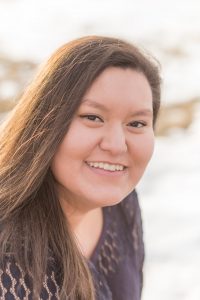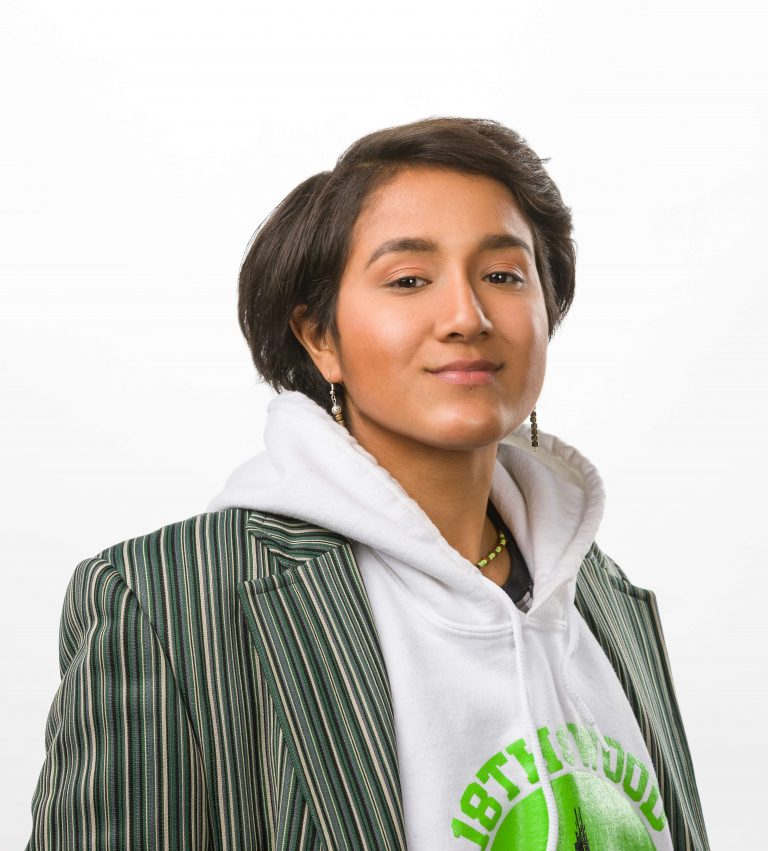For Point Scholars like Z, the personal is very much political.
A Two Spirit individual from the Oneida and HoChunk tribal nations, Z has had to advocate for themself time and again throughout their education.
 In 2021, Z served as the Student Body President for the Associated Students of Fort Lewis College, during which time they worked with other LGBTQ+ student government members to pass a resolution affirming the rights of 2SLGBTQ+ (Two-Spirit, lesbian, gay, bisexual, trans, & queer) students on campus.
In 2021, Z served as the Student Body President for the Associated Students of Fort Lewis College, during which time they worked with other LGBTQ+ student government members to pass a resolution affirming the rights of 2SLGBTQ+ (Two-Spirit, lesbian, gay, bisexual, trans, & queer) students on campus.
However, Z continued to be misgendered by other members of the student government. Eventually, he confronted his peers about the misgendering and questioned their commitment to the resolution. When the misgendering and microaggressions continued, Z decided to resign from their position as Student Body President.
“Though it is not a clear message of advocacy for 2SLGBTQ+ rights within an institution, I was acknowledging my individual rights to respect," Z said. "My right as a queer person to choose who is my community. Highlighting this is important to me because this is the power that 2SLGBT+ bring to a cisheteronormative society.”
Z now serves as the founder and current president of the Indigenous Pre-Law Society at Fort Lewis College, where he is completing their degree in political science, environmental conservation and adaptation, and Native American and Indigenous Studies.
 Fellow Native Point Scholar Kaeleigh plans to use a career in medicine to care for her community. Born and raised on the Fort Peck Reservation in Montana, Kaeleigh is a member of the Dakota people. In the summer of 2020, she realized she had an interest in medicine after taking part in the Ed Furshpan and David Potter Native American High School Program at Harvard.
Fellow Native Point Scholar Kaeleigh plans to use a career in medicine to care for her community. Born and raised on the Fort Peck Reservation in Montana, Kaeleigh is a member of the Dakota people. In the summer of 2020, she realized she had an interest in medicine after taking part in the Ed Furshpan and David Potter Native American High School Program at Harvard.
Today, Kaeleigh is studying medical laboratory sciences at Minot State University in Montana, where she is currently a member of the Science Club, the Native American Club, and the Psychology and Addiction Studies Club on campus. After college, she plans to become a microbiologist to help combat addiction in Native communities where addiction rates are among the highest in the country.
“I would like to become a microbiologist, go to graduate school for it, and then be able to come back to Fort Peck as a role model for the youth there…," Kaleigh said. "I would also like to work at our Indian Health Services. We need more people with qualifications to serve our community.”
Kaeleigh said application resources are also important for Native youth applying for college.
“It was really valuable because as a Native American, we’re not really taught much about college on our reservation,” Kaeleigh said.
Access to college continues to be difficult for Native youth across the country. The Postsecondary National Policy Institute estimates less than 19% of all Indigenous people between the ages of 18 and 24 are currently pursuing college degrees. This is less than half of the national average.
Point’s holistic scholarship programs, which include financial support, mentorship, and networking opportunities, as well as leadership training, help ensure our Native scholars have the tools they need to succeed in their careers and pave the way for future students to go to college, care for their communities, and create a world in which they can thrive.

